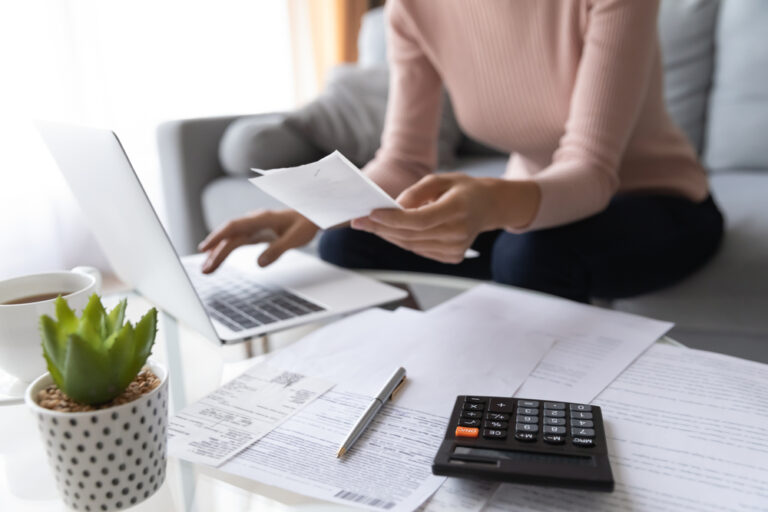One major aspect of buying a home that can confuse first-time buyers is stamp duty.
Essentially a tax that’s paid when you buy a home, there have been a host of changes to stamp duty that first-time buyers should be aware of – and there are more to come in 2021.
Do first-time buyers pay stamp duty?
First-time buyers are not completely exempt from paying stamp duty – but the amount you have to pay depends on the price of the property you’re buying.
Until stamp duty rates were changed in July 2020, first-time buyers in England paid no stamp duty on the first £300,000 of their property’s purchase price as long as that price didn’t exceed £500,000.
However, since July 2020, and until June 30, 2021, first-time buyers are exempt from stamp duty on the first £500,000 of a property’s purchase price as part of the extended stamp duty ‘holiday’. In Wales, first-time buyers pay the same rates of Land Transaction Tax (LTT) as other buyers.
Who qualifies as a first-time buyer?
A first-time buyer is someone who has never purchased a property before.
As well as main residences, first-time buyers must also have never bought an investment property or inherited one.
If you’re buying a property with someone else, both of you must be classed as first-time buyers in order to qualify for any stamp duty relief.
First-time buyer stamp duty relief: The current rates and what you could save
Under the current stamp duty rules, which are in place until June 30, 2021 following the extension of the stamp duty holiday in England, you can make substantial savings as a first-time buyer if the property you’re buying costs more than £300,000.
The current first-time buyer stamp duty rates, until June 30, 2021, are:
| Portion of purchase price | Stamp duty rate |
| £0 – £500,000 | 0% |
| £500,001 – £925,000 | 5% |
| £925,001 – £1.5m | 10% |
| £1.5m + | 12% |
Those rates mean first-time buyers could make the following savings compared with the previous £300,000 first-time buyer exemption – if they can complete before June 30, 2021:
| Purchase price | Stamp duty ‘holiday’ saving |
| Up to £300,000 | £0 |
| £350,000 | £2,500 |
| £400,000 | £5,000 |
| £500,000 | £10,000 |
Further changes to stamp duty for first-time buyers in 2021
The stamp duty ‘holiday’ was originally due to end on March 31, 2021 but has now been extended until June 30.
That means first-time buyers in England remain exempt from stamp duty on the first £500,000 of a property’s purchase price until that date.
From July 1, 2021, the first-time buyer exemption threshold will revert back to £300,000 – meaning you’ll pay no stamp duty on the first £300,000 of a property’s purchase price as long as that price is not more than £500,000.
If your purchase price is above £300,000 but doesn’t exceed £500,000, you’ll pay 5% stamp duty on the portion between £300,001 and £500,000.
First-time buyers purchasing properties costing more than £500,000 will pay the standard rates of stamp duty from July 1.
Is the stamp duty holiday for first-time buyers only?
Stamp duty rules brought in during July 2020 are for all buyers in England.
Those buying investment properties or second homes, however, will still pay a 3% surcharge on top of all rates.
What effect has the stamp duty holiday had on property prices?
Despite the coronavirus pandemic, price growth throughout the UK was healthy in 2020, according to Rightmove’s December House Price Index.
Nationally, property prices grew by 7.3% in 2020, according to the Nationwide, with Rightmove forecasting growth of 4% in 2021 as the UK continues to recover from the pandemic.
Annual growth in other areas of the UK, however, exceeded that national figure in 2020:
| Region | 2020 property price growth |
| North West | 10.6% |
| North East | 9.1% |
| Yorkshire & Humber | 8.8% |
| East Midlands | 7.1% |
| West Midlands | 8.1% |
| Wales | 8.2% |
Data from Rightmove’s December 2020 House Price Index
Price growth early in 2021 has continued on that upward trajectory, too, with the stamp duty ‘holiday’ extension sparking a flurry of buyer and seller activity.
| Region | Annual price growth (as of March 2021) |
| North West | 7.3% |
| North East | 5.4% |
| Yorkshire & Humber | 2.8% |
| East Midlands | 3.2% |
| West Midlands | 3.8% |
| Wales | 6.4% |
Data from Rightmove’s February 2021 House Price Index
Will first-time buyers need bigger deposits?
With property prices rising in 2020 and continuing to grow early in 2021, first-time buyers could need larger deposits to get on the property ladder this year.
However, the Help to Buy scheme remains open to first-time buyers, who’ll need only a 5% deposit to go alongside one of the scheme’s 20% equity loans.
The government has also announced the start of a 95% mortgage guarantee scheme from April, 2021.
The scheme has been developed in a bid to encourage lenders to offer more mortgages to first-time buyers who have only a 5% deposit.
Under the plans, the government will guarantee the portion of a buyer’s mortgage over 80%, meaning they would compensate the lender should the homeowner default on their mortgage payments.
Major lenders, including Barclays, HSBC and NatWest have committed to launching new 95% guaranteed mortgage deals from April 2021.
How to beat the stamp duty deadline
With stamp duty rates for first-time buyers set to return to a £300,000 exemption rate from July 1, the race is on for first-timers to complete before that June 30 deadline.
Here are three things you can do to speed up your purchase process and beat the deadline:
1. Buy at auction
One way for you to beat the deadline as a first-time buyer could be to buy at auction.
Auction sales have fixed timeframes for completion, meaning it’s possible to get the keys to your new home in little over one month.
At a traditional auction, you exchange contracts with a seller as soon as your bid is successful – and then have a further 28 days to complete your purchase.
The Modern Method of Auction, which is usually an online sale, often has a 56-day completion deadline – but this could still help you complete before the June 30 stamp duty cut-off.
Our guide to buying at auction explains everything you need to know.
2. Hire a proactive solicitor
The legal work on your property purchase is a necessity – but can sometimes be a slow process.
By hiring a proactive solicitor or conveyancer, you can keep your purchase on track and complete before the stamp duty deadline.
Get recommendations from friends or family and look for online reviews that particularly highlight how fast a solicitor works.
3. Get your documentation in order – and apply for an agreement in principle
Before starting to view properties, apply for a mortgage agreement in principle (AIP).
This can be done online with most lenders in just a few minutes and shows sellers that you’re in a position to proceed and are serious about buying.
It’s important to remember, however, than an AIP is only an indication of what you may be able to borrow and you’ll need to go through a full application, credit scoring and affordability process before receiving a mortgage offer.
As well as your AIP, sort out all the documents you’ll need to supply to your solicitor and lender once you have an offer accepted on a property – that way, you’ll be able to get the ball rolling on your purchase right away as you aim to beat the stamp duty deadline.
Further reading…
The cost of buying a home isn’t solely what you pay for your property – there are a whole host of other expenses you should be aware of, too.
And if you’re a first-time buyer looking to get on the property ladder in 2021, take a look at these UK hotspots.




